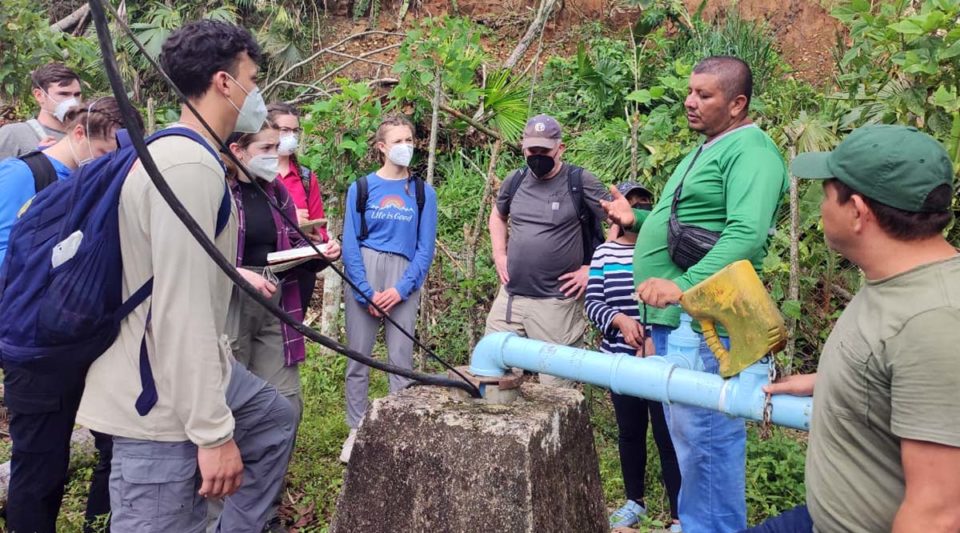Safe water is unavailable to one in ten globally, and people living in poverty are disproportionally affected. Students in Notre Dame’s chapter of Engineers Without Borders (EWB-ND) are working in the remote village of San Pedro de Suma in Ecuador to assess the effectiveness of a water treatment system the club helped design and install in 2018.
Melissa Berke, associate professor in the Department of Civil and Environmental Engineering and Earth Sciences, serves as faculty advisor for the chapter, which is partnering with the community to develop a clean, reliable water source.
EWB-ND first became involved with San Pedro de Suma after a 7.8-magnitude earthquake damaged the region’s roads and buildings. This community of 1,500, located on the flat plain between the spine of the Northern Andes and the Pacific coast, was just 60 miles from the epicenter.
The earthquake damage was repaired, but tests of the school’s water showed high levels of E. coli — bacteria that can cause diarrhea, stomach pain, low-grade fever and the potential for life-threatening conditions. There also were no handwashing facilities outside the school latrines, and parents confirmed that their children frequently missed school because of upset stomachs.
EWB-ND met with community members to find out what they wanted from a water treatment system. They then checked soil properties and topography. Local engineers, builders and contractors were engaged, and, whenever possible, local products were used so that regional supply chains would benefit.
The team returned to the village in 2019 to install the water treatment system. Working alongside community members, they dug a trench, put down PVC pipe, and rerouted the water source through the chlorinator and water tank so that clean water was brought to the school’s kitchen and bathrooms.
Covid stopped all travel for the group until May of this year, when the team returned to test the water, review maintenance procedures, and survey the community about potential improvements and expansions.





“The goal is not to just go in and drop a well in some community and then walk away,” said Berke, who previously worked with EWB-ND as faculty advisor for a project with similar clean water goals in Sangmélima, Cameroon. “The goal is to make sure that it’s sustainable and that there’s a plan to keep things working.”





Measurements from the May trip confirmed the water was clean, and older children reassured the younger ones that the chlorine taste was nothing to worry about, according to Berke.
Berke, whose research in paleoclimatology and organic biogeochemistry spans areas as diverse as the Arctic tundra, equatorial Africa, and subtropical Central America, believes the students benefit as much as the communities from these cross-cultural experiences.
“They gain new perspectives, and they get to translate the skills they learned in the classroom to the real world to help people,” said Berke. “I think that’s one of the great things that students in engineering can do, and I love being able to facilitate that.”
The team plans to return to San Pedro de Suma this fall, and the community’s needs — as recorded in May’s surveys, interviews and conversations — will determine what clean water project EWB-ND pursues next.
— Karla Cruise, Notre Dame College of Engineering
